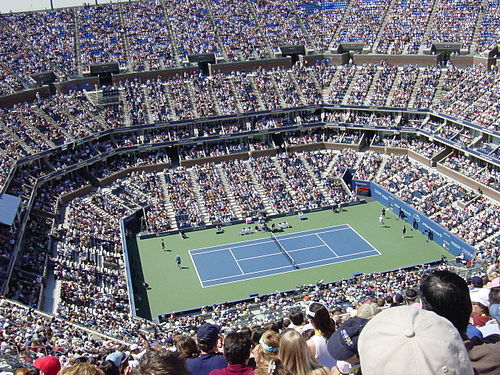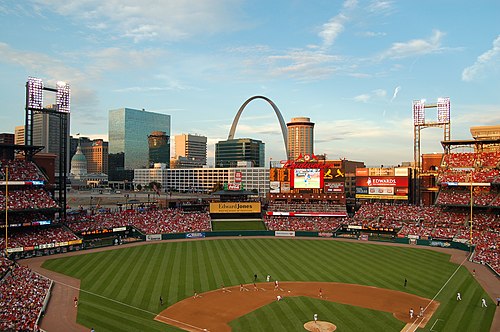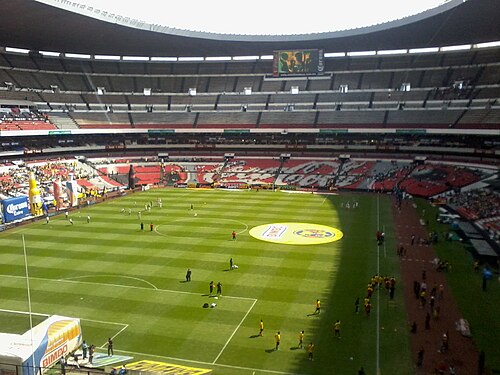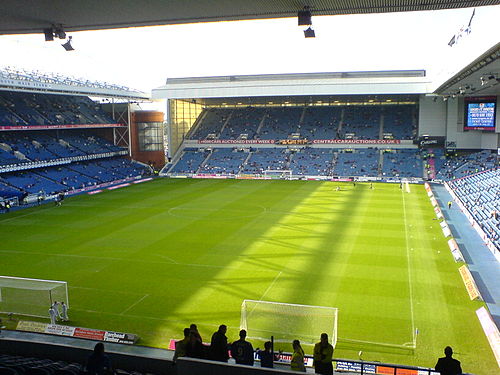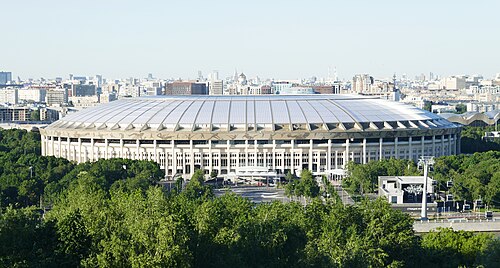Stadianoun
(surveying) A level staff or graduated rod used by surveyors to measure differences in level, or to measure horizontal distances by sighting the stadia hairs (graduations) through a telescope.
Stadianoun
(military) historically A graduated brass triangle used to measure the distance of a target by comparison of the graduations with the heights of soldiers or horses.
Stadiumnoun
A venue where sporting events are held.
Stadiumnoun
An Ancient Greek racecourse, especially, the Olympic course for foot races.
Stadiumnoun
A Greek measure of length, being the chief one used for itinerary distances, also adopted by the Romans for nautical and astronomical measurements, equal to 600 Greek or 625 Roman feet, or 125 Roman paces, or to 606 feet, 9 inches.
Stadiumnoun
A kind of telemeter for measuring the distance of an object of known dimensions, by observing the angle it subtends.
Stadiumnoun
(surveying) a graduated rod used to measure the distance of the place where it stands from an instrument having a telescope, by observing the number of the graduations of the rod that are seen between certain parallel wires (stadia wires) in the field of view of the telescope.
Stadiumnoun
(biology) A life stage of an organism.
Stadiumnoun
A Greek measure of length, being the chief one used for itinerary distances, also adopted by the Romans for nautical and astronomical measurements. It was equal to 600 Greek or 625 Roman feet, or 125 Roman paces, or to 606 feet 9 inches English. This was also called the Olympic stadium, as being the exact length of the foot-race course at Olympia.
Stadiumnoun
A race course; especially, the Olympic course for foot races.
Stadiumnoun
A modern structure, with its inclosure, resembling the ancient stadium{2}, used for athletic games which are typically played out-of-doors; such stadiums are usually large structures without roofs, though some modern stadiums may have a protective dome overhead. It may be contrasted with the arena, the term commonly used for smaller structures at which indoor games are played.
Stadiumnoun
A kind of telemeter for measuring the distance of an object of known dimensions, by observing the angle it subtends; especially (Surveying), a graduated rod used to measure the distance of the place where it stands from an instrument having a telescope, by observing the number of the graduations of the rod that are seen between certain parallel wires (stadia wires) in the field of view of the telescope; - also called stadia, and stadia rod.
Stadiumnoun
a large structure for open-air sports or entertainments
Stadium
A stadium (plural stadiums or stadia) is a place or venue for (mostly) outdoor sports, concerts, or other events and consists of a field or stage either partly or completely surrounded by a tiered structure designed to allow spectators to stand or sit and view the event.Pausanias noted that for about half a century the only event at the ancient Greek Olympic festival was the race that comprised one length of the stadion at Olympia, where the word originated.Most of the stadiums with a capacity of at least 10,000 are used for association football. Other popular stadium sports include gridiron football, baseball, cricket, the various codes of rugby, field lacrosse, bandy, and bullfighting.








